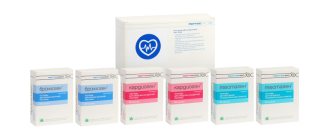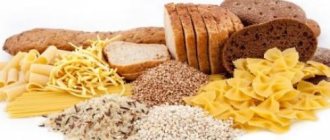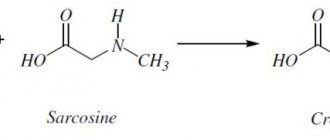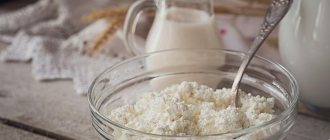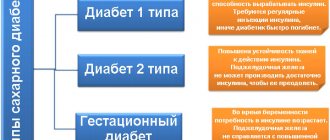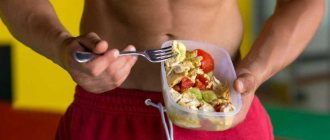Over the past few decades, insulin has undergone a mini-revolution in bodybuilding. Professional bodybuilders have become even bigger. Some of them gain up to 10 kg per season after reaching a plateau.
The idea is conveyed to a wide audience that such a colossal result is associated with the use of new secret drugs or genetic engineering.
The truth is that bodybuilders have discovered a powerful anabolic hormone that is produced in the body - insulin. Its advantages are that it is legal (as a diabetic drug) and very cheap.
In this article we will talk about the mechanism of action of insulin in sports and bodybuilding and you will find out why today many athletes, without diabetes, lead a diabetic lifestyle...
Main thoughts:
Insulin is one of the most anabolic, i.e. useful for muscle growth, hormones in the human body. It controls the metabolism of carbohydrates, fats and proteins, which creates the conditions for muscle growth as well as... gain of fat mass
Insulin in sports is usually used in combination with steroids and growth hormone to overcome the physiological plateau in weight gain. Its anabolic properties, perhaps even stronger than those of growth hormone
Insulin doesn't just help stimulate muscle growth... without it, it's basically impossible
Insulin stimulates the accumulation of glycogen in the muscles, which makes them denser and more voluminous by retaining water (for every gram of glycogen - approximately 2.7 grams of water)
High insulin levels negatively affect weight loss. It prevents the use of fats for energy, promotes the formation and accumulation of fat
High levels of insulin in the blood are important for gaining muscle mass
To lose weight, you need to limit the level of insulin in the blood to stimulate fat burning; but without fanaticism: insulin is necessary to avoid a state of catabolism and to provide energy for training
If your goal is to gain muscle mass and lose weight, then build your diet flexibly: stimulate insulin secretion during, before and after training (eating fast carbohydrates) and suppress it the rest of the day, limiting the amount of carbohydrates in food
What is insulin?
Insulin is a hormone that is produced in the pancreas and has multiple functions that together make it one of the main, if not the most important, anabolic hormone in the human body.
Anabolic - determining muscle growth.
Insulin controls the metabolism of carbohydrates, fats and proteins in the body.
Insulin's main function in the body is to maintain safe and stable levels of glucose (sugar) in the blood. In the process of its implementation, depending on certain conditions (see below), favorable conditions are created either for muscle growth or for increasing the amount of fat in the body.
In addition, insulin itself has a positive effect on protein synthesis in the body , including muscle protein, promoting more efficient muscle growth.
Lack of insulin has the opposite effect - catabolic, i.e. leads to the destruction of muscle mass.
Insulin is one of the most anabolic, i.e. useful for muscle growth, hormones in the human body. It controls the metabolism of carbohydrates, fats and proteins, which creates the conditions for muscle growth as well as... gain of fat mass
We recommend : Expert opinions on insulin: reviews from doctors, coaches and athletes
Pros and cons of insulin
The advantages are as follows:
- affordable course cost;
- guaranteed high quality (insulin, unlike anabolic steroids, is practically not counterfeited);
- ease of acquisition, you can easily buy it at a pharmacy;
- has a pronounced anabolic effect;
- low likelihood of developing side effects;
- there are no consequences from use;
- weakly expressed rollback;
- possible joint use with steroids and other compounds;
- does not have an androgenic effect on the body;
- there is no toxic effect on the kidneys and liver, and there are no problems with male sexual function.
Insulin deficiencies can be displayed in three points:
- may cause hypoglycemia;
- During the course, fat mass increases significantly;
- complex injection scheme.
Insulin in sports and bodybuilding
In bodybuilding, interest is primarily in the anabolic properties of insulin, i.e. its ability to increase the efficiency of processes that directly affect the growth of muscle mass.
Its anabolic properties are perhaps even stronger than those of growth hormone.
According to the WADA (World Anti-Doping Agency) classification, insulin is a doping drug prohibited for use, but one of the most popular among professionals and amateur bodybuilding.
“It cannot be detected during a doping test. It simply improves athletic performance. It just can kill...” - this is how a news article about insulin on one of the information portals begins.
Insulin use in sports is one of the latest deadly trends. Bodybuilders often use it in combination with steroids and growth hormone to maximize stimulation of muscle growth and overcome physiological plateaus in mass gain . An estimated one in four bodybuilders "on steroids" also takes insulin. This is a secret of incredible size.
Insulin helps save lives for people with diabetes. Use of it by healthy people (= athletes) can result in coma and death .
In bodybuilding, insulin helps supply muscles with energy and nutrients during intense exercise and prevent muscle catabolism.
The International Olympic Committee prohibits its use. Although it is one of the few doping drugs that cannot be detected . Many bodybuilders take it up until competition and still pass a drug test.
Insulin in sports is usually used in combination with steroids and growth hormone to overcome the physiological plateau in weight gain. Its anabolic properties, perhaps even stronger than those of growth hormone
We recommend : Side effects of insulin in sports and bodybuilding: overdose, coma, death
Positive traits
The main purpose of insulin is considered to be the redistribution of glucose in cells and the normalization of protein metabolism. Depending on the diet and body structure of a person, additional intake of the hormone leads to an increase in fat or muscle tissue. In this regard, it is recommended to know how insulin affects weight and follow certain rules of administration in order to achieve muscle gain without gaining fat. Requirements:
- the course should not last more than two months;
- it is necessary to select the correct dosage and strictly follow the regimen of taking the drug;
- You should follow a suitable diet while using insulin.
During the period of taking the hormone, an athlete’s weight can be increased by 5-10 kilograms.
The mechanism of action of insulin for gaining muscle mass in bodybuilding
In bodybuilding, insulin is used to increase endurance and build muscle mass.
When we eat something sweet, insulin is released by the pancreas and facilitates the penetration of glucose into cells (including muscle cells) for use as energy.
Share with us your experience of losing weight or gaining muscle mass!
The anabolic properties of insulin are explained by the fact that, in addition to glucose, it provides better delivery of amino acids (= building materials) and some minerals into muscle cells and enhances the synthesis of muscle proteins.
Glucose is an energy molecule. If its concentration in the blood exceeds the body's current need for energy, then it is converted into glycogen. Glycogen is an energy store that is “opened” by the use of glucose in the blood and is used to fuel muscles during exercise.
Dr Sonksen from St Thomas's Hospital in London, in his article on the use of growth hormone and insulin in sports, says: “Since in most sports the performance is determined by the amount of glycogen in the muscles, increasing its content in them directly affects the result.”
We recommend : Tamoxifen in bodybuilding after a course of steroids: side effects and instructions for use
The action of insulin for gaining muscle mass in bodybuilding is explained by the following mechanisms:
1 Insulin stimulates muscle protein synthesis
Insulin stimulates protein synthesis (and therefore muscle growth).
How?
Muscles are made up of muscle proteins. These proteins are produced by ribosomes. The mechanism of protein synthesis by ribosomes is triggered by insulin. (Ribosomes, according to Wikipedia, are complex molecular machines in which information on how to create a protein is written like a code.)
One of the scientists gives this explanation of the process:
“It’s not entirely clear how, but insulin triggers the ribosomal protein production machine. In its absence, ribosomes simply stop working; it seems to act as a switch.”
Does this mean that insulin “helps” build muscle? No. This means that without insulin this is impossible.
Insulin doesn't just help stimulate muscle growth... without it, it's basically impossible
2 Insulin prevents muscle catabolism
Another useful function of insulin in bodybuilding is that it prevents muscle breakdown. Its anti-catabolic function is just as important for mass gain as its anabolic effect.
Every day our body creates and breaks down proteins. To gain muscle mass, it is necessary that more protein be synthesized than destroyed. Insulin helps shift this ratio in the right direction, promoting more efficient delivery of amino acids inside muscle cells.
If you think what we do is important, support our project!
YES!
We recommend : Growth hormone in bodybuilding: reviews from athletes, coaches, experts
3 Insulin improves the delivery of amino acids into muscle cells
Insulin facilitates the penetration of amino acids into muscle cells, which makes the process of their recovery and growth more effective.
Among all amino acids, BCAA amino acids are of particular importance, known for their colossal role in building muscle mass.
4 Insulin increases glycogen synthesis, making muscles more voluminous
Insulin increases the activity of certain enzymes that stimulate glycogen synthesis. This means that it helps store glucose in muscle cells, thereby improving performance, recovery and, quite literally, increasing muscle size.
The accumulation of glycogen in muscles makes them denser and bulkier as it retains water: each gram of glycogen “binds” approximately 2.7 grams of water .
Insulin stimulates the accumulation of glycogen in the muscles, which makes them denser and more voluminous by retaining more water.
We have sorted out the anabolic properties of insulin in bodybuilding. Now let's look at the other side of the coin...
Application in bodybuilding. Peculiarities
Please note that only a short-acting hormone is used for insulin courses in bodybuilding. Ultra-short is also acceptable.
The first one will work as follows: when an athlete injects insulin subcutaneously, it begins to act after half an hour. Injections should be given 30 minutes before meals. Insulin will reach its maximum effect 2 hours after the injection. It will completely stop transporting in the human body 6 hours after the injection.
Now you know how to inject insulin in bodybuilding. But what drugs are best to use? Experts highlight the following: “Humulin regular”, “Actrapid NM”.
Ultra-short insulin in bodybuilding will work according to the following principle: after injection into the blood, the drug begins to act within 10 minutes, and after 2 hours maximum efficiency is achieved. It will stop working 3-4 hours after the injection. Once you have injected insulin, you should eat food immediately. However, in some cases the injection is given immediately after eating.
But what is the best rapid-acting insulin for bodybuilding? Two drugs are considered such: “Flexpen”, “Penfill”.
For a 2-month course of using insulin in bodybuilding, you will have to pay about 2000-3000 rubles. That is why the drugs are very affordable.
Disadvantages of using insulin in bodybuilding: impact on weight loss
The same mechanism that explains the anabolic properties of insulin is the cause of another, but already negative side effect of its use in bodybuilding - gain of fat mass .
When we eat a lot of carbohydrates and the glycogen stores in the liver and muscles are filled, then the excess sugar in the blood is sent to fat stores with the help of insulin.
Those. Along with stimulating muscle growth, insulin accelerates the process of lipogenesis (fat formation).
This is of particular importance for those sports where weight category is taken into account: when using insulin, you can easily fall out of your category.
We recommend : Are anabolic steroids effective for losing weight and drying the body?
The mechanism of action of insulin in gaining fat mass is as follows:
1 Insulin converts excess carbohydrates into fat
Carbohydrates, or more precisely glucose, are the primary source of energy for cells.
Insulin “opens” cell membranes for glucose to enter.
Read us on the networks
If there is too much glucose in the blood, then its excess in excess of the current energy requirement is stored first in glycogen stores in the liver and muscles, and after they are filled, it is stored in fat.
2 Insulin prevents the use of fats for energy
The main function of insulin is to provide energy through carbohydrates, not fats. Carbohydrates (glucose) are the primary source of energy for all cells.
This means that as long as there are carbohydrates in the system, the energy for cell functioning will be taken from them, and fat storage will remain closed.
Some weight loss diets are based on using this principle to activate the fat burning process. Specifically, intermittent fasting and the ketogenic diet.
With intermittent fasting, food is consumed only in an 8-hour window during the day. The result of this restriction of the time interval during which you are allowed to eat is that the glycogen stores are completely depleted in the remaining 16 hours of the day and the process of using fat for energy begins.
On a ketogenic diet, carbohydrates are almost completely eliminated from the diet, due to which glycogen stores are always left empty and the body has no choice but to burn fat for energy.
3 Insulin blocks the action of an enzyme that activates the fat burning process
This enzyme is called hormone-sensitive lipase and is responsible for breaking down fat molecules.
Burning fat always begins with its breakdown to the level of fatty acids, which are then used for energy. Obviously, a violation of the first stage interferes with the process of losing weight.
4 Insulin promotes fatty acid synthesis
Insulin increases fatty acid synthesis in the liver, which begins the process of lipogenesis, or the creation of body fat.
High insulin levels negatively affect weight loss. It prevents the use of fats for energy, promotes the formation and accumulation of fat
We recommend : Diuretics in bodybuilding: types and mechanism of action
The effects that the hormone has on the body
The drug stimulates metabolism in almost all organs of the body, reduces glucose levels, and has a pronounced anabolic effect.
Metabolic effect
The metabolic effect of the drug consists of its influence on the activation of metabolic processes in the cells and tissues of the body:
- An increase in cellular absorption of nutrients and glucose, achieved by changing the permeability of cell membranes.
- Stimulation of enzymes that break down glucose into simpler sugars used as an energy source.
- Increased deposition of glucose in the form of glycogen in cell structures and liver.
- Reduced production of glucose from substances of non-carbohydrate nature, suppression of enzymes that ensure the breakdown of fats and glycogen.
Note! Ensuring normal metabolism is based on the coordinated interaction of insulin and glucagen, which refers to biologically active substances synthesized by the pancreas and is intended to increase the concentration of sugar when its level in the blood drops critically.
Anabolic effect
Among other anabolic-type effects, experts call:
- ensuring the entry of phosphate, potassium and magnesium ions into the cells;
- activation of the process of absorption of protein structures (valine, leucine) by the cells of the body;
- ensuring the process of protein production and the formation of daughter DNA structures;
- stimulates the production of fatty acids and their conversion into triglycerides from glucose, which occurs in the liver and lipid structures with the help of insulin
Important! The use of the hormone provokes a significant increase in the accumulation of necessary substances and water in the cells. This, in turn, ensures stretching of cell membranes to fill them and gain fat and muscle mass, and triggers a growth mechanism under the influence of a mechanical factor and insulin.
Anti-catabolic effect
It represents the actions of the drug aimed at preventing the destruction of protein structures that are part of the physiological processes occurring in the human body and necessary to provide it with energy and heat. Prevention of destruction of muscle structures is ensured by taking insulin due to:
- Reducing the amount of fatty acids entering the blood.
- Inhibition of the process of hydrolysis of protein structures, leading to their disintegration.
Note! The high effectiveness of ultra-short-acting hormones (FlexPen, Penfill) and short-acting hormones (Humulinregular, Actrapid NM) is ensured by a combination of anti-catabolic, metabolic and anabolic results.
How to use insulin in bodybuilding for gaining weight or losing weight (without drugs)?
You can use the anabolic properties of insulin in bodybuilding in two ways: by building the right diet and injections.
Since the release of insulin is the body’s response to the consumption of carbohydrates, by regulating their content in food, you can control the level of insulin: when you need to raise it, and when you need to lower it.
Injectable insulin preparations are used in bodybuilding to have a more significant and rapid effect on its blood levels at critical moments.
Insulin for gaining muscle mass
To ensure muscle growth, it is necessary to ensure high levels of insulin in the blood throughout the day, and especially in the moments during, before and immediately after exercise.
That is why, according to the principles of proper nutrition for gaining muscle mass, carbohydrates are no less important than protein, although the opposite point of view is very common, according to which only protein is responsible for gaining weight, and carbohydrates are something that must be minimized in every possible way to achieve lean relief.
High levels of insulin in the blood are important for gaining muscle mass
Insulin for weight loss
If your goal is to lose weight, then you need to limit your insulin levels during the day. Therefore, many diets are based on the principle of completely eliminating fast carbohydrates (sweets).
We recommend : The most effective diets for weight loss: principles, myths, top 5 diets
However, an intellectual approach is important. “Less is more” does not work here, especially for physically active people.
A lack of carbohydrates during sports will certainly lead to muscle weakness, decreased endurance, and can also cause muscle catabolism: muscle mass will be lost along with fat mass.
To lose weight, you need to limit the level of insulin in the blood to stimulate fat burning; but without fanaticism: insulin is necessary to avoid a state of catabolism and to provide energy for training
Insulin for gaining muscle mass and losing weight
This is the ideal goal for most athletes in fitness and bodybuilding. Almost all athletes strive for it.
In bodybuilding, it is believed that it is impossible to burn fat and gain muscle mass at the same time. That is why in professional sports there is a constant alternation of phases of mass gain, during which the percentage of body fat is high and the mass grows, and body drying, the task of which is to reduce the percentage of body fat and maintain muscle mass.
But within certain limits this can be done.
When blood glucose levels are high, insulin is released and the glucose is stored in muscle or liver glycogen—favorable conditions for gaining muscle mass.
When blood glucose levels are low, insulin secretion decreases and fat becomes the body's main source of fuel - favorable conditions for weight loss.
Insulin levels are a switch that can be controlled to either “gain muscle mass” or “lose fat mass” when needed.
Every day needs to be planned so that at the right time you start the process of gaining muscle mass, and when necessary, burning fat.
If you want to gain weight, stimulate the release of insulin . This is especially important during training, before and after it.
We recommend : How to gain muscle mass? Beginner's Guide
Insulin does not convert glucose into fat if it can first store it as glycogen. Glycogen stores are depleted during physical activity, so consuming carbohydrates during and after exercise will not lead to the accumulation of fat in the body .
Immediately after intense strength training, when glycogen stores in the muscles and liver are depleted, take protein along with carbohydrates. Not necessarily sports. This could be a gainer, whey protein with bread, protein food with porridge.
The rest of the day, limit the amount of carbohydrates in your diet in order to avoid gaining fat mass. Although small insulin boosts a few more times a day may be helpful.
If your goal is to gain muscle mass and lose weight, then build your diet flexibly: stimulate insulin secretion during, before and after training (eating fast carbohydrates) and suppress it the rest of the day, limiting the amount of carbohydrates in food
Admission course
Now you know what insulin is like. The next task will be to use this drug correctly. It is very important not to extend the course for more than 2 months. If you follow all the instructions, then after the first course of using insulin you can gain about 10 kg of lean muscle mass. It is very important to start with small dosages, no more than 2 units. Injections are given subcutaneously. Gradually the dosage reaches 20 units. Pay attention to how your body takes the drug. It is strongly not recommended to use more than 20 units per day.
Before using a transport hormone, pay attention to 2 main factors, which are as follows:
- Be sure to start with a low dose and gradually increase until it reaches 20 units. It is strictly forbidden to suddenly switch from 2 units to 6, or from 10 to 20. The fact is that a sharp transition can provoke very unpleasant consequences for your body.
- You should also not go beyond 20 units. Also note that each person's body takes insulin completely differently. For some, 20 units may be a lot.
The frequency of administration may be completely different. You can take insulin every day, once a day, several times a day, every other day. If you inject every day, or several times a day, the total duration of the course should be reduced. If the injections are carried out every other day, then the course should be no more than 2 months.
It is strongly recommended to give injections after training, and then eat food that is rich in long-term carbohydrates and proteins. You should inject it immediately after visiting the gym, because the transport hormone has an anti-catabolic effect. Insulin is able to suppress the process of catabolism caused by physical activity.
Note that using insulin post-workout has several other benefits: When you push your body into hypoglycemia, it will naturally lower your blood glucose levels. After visiting the gym, growth hormone is rapidly released. It is not recommended to inject insulin at other times of the day. If you train three times every 7 days, and the remaining 4 days you rest, you can inject in the morning before meals, when you are not training. In this case, it is recommended to use short-acting insulin. Half an hour after the injection you can have a full meal. During training, injections are given only after visiting the gym.
Introduction
Regulation of insulin production is a complex process that includes stimulants (glucose, amino acids, fatty acids), the effect of which is multiply enhanced by calcium ions, as well as inhibitors (somatostatin, adrenaline and insulin itself). In addition, the autonomic nervous system also has a significant influence on secretion. The sympathetic nervous system has an inhibitory effect, and the parasympathetic system has a stimulating effect. Normal insulin production includes two components: basal, which prevents excessive catabolism on an empty stomach, and stimulated by food intake. Insulin released from the pancreas circulates in the blood in two states, or rather forms: in free and protein-bound form.
Contraindications and side effects
The hormone is undesirable for people who are prone to obesity, because there is a high risk of fat deposits instead of muscle fiber growth.
To minimize the risk of a sharp drop in blood sugar, you should adhere to a special diet and follow the injection regimen and dosage.
Signs of hypoglycemia include:
- weakness;
- dizziness;
- loss of orientation;
- hunger;
- trembling fingers;
- increased heart rate.
In order to relieve an attack, you need to eat something sweet.
In some cases, an allergy may occur at the injection site, which is accompanied by itching and redness.
It is also worth noting that taking the hormone for more than two months is not recommended. This may reduce the release of insulin from the pancreas.

